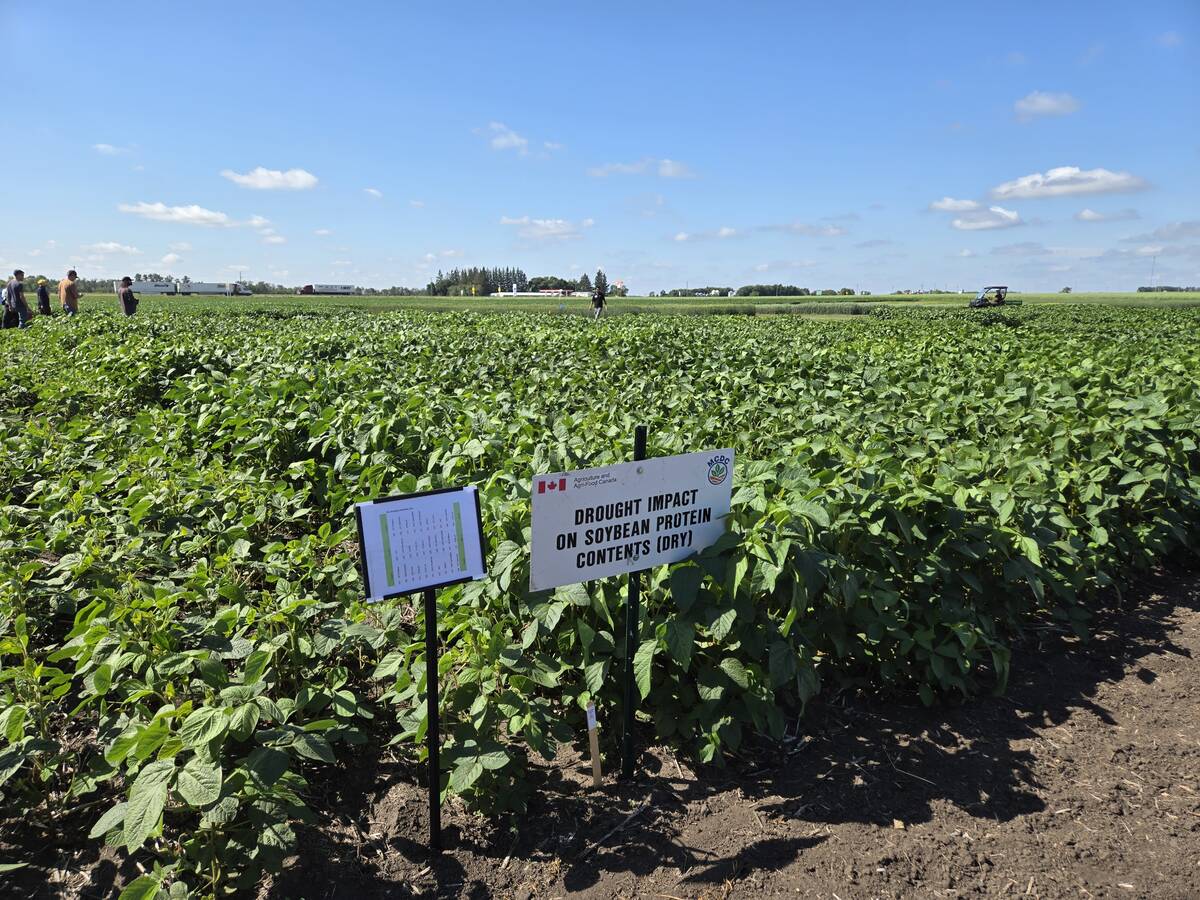Saskatchewan Research Council lead researcher Monique Wismer said her team looks at two different components when it studies carbon footprints.
“First we look at the manufacturing of the farm implement. We study the energy and the materials that go into building an implement.
“Then we look at the actual use of that implement on the soil over a 20 year life span.”
She said the criteria requires a thorough footprint audit starting with the raw steel at the mill and extending through every step until the implement arrives at the farmgate.
Read Also

Carberry field day looks for agriculture solutions
Manitoba farmers explored research solutions for resilient crops, perpetual agronomic issues and new kinds of agricultural products at a field day at the Manitoba Crop Diversification Centre in Carberry on Aug. 6.
“We didn’t compare Seed Hawk to any of the other manufacturers. But we do know that Seed Hawk has sectional control technology.”
She said that should have a positive effect on farmers’ carbon footprint documentation because it reduces the number of passes over each specific piece of ground.
Wismer said the Seed Hawk exercise was the first Carbon Trust eco-label the SRC has obtained for a client.
At the end of the 12 month study, Seed Hawk rated a star and a big carbon footprint logo from Carbon Trust, an independent company in the United Kingdom that rates the environmental impact of various activities.
Seed Hawk is the first farm implement manufacturer in the world to get its certification from the Carbon Trust rating system, said Seed Hawk founder Pat Beaujot.















